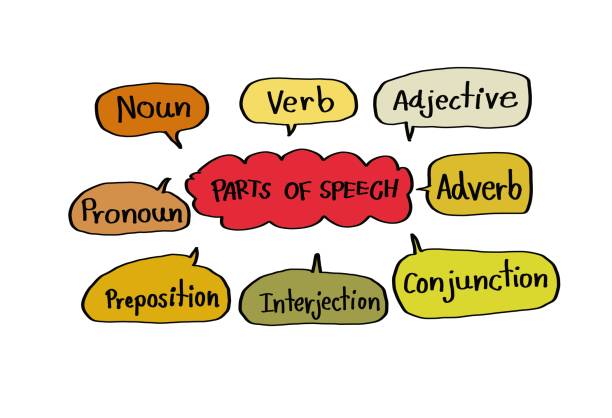
Lav Goyanka
India |
(1 vote)
- Review of the representation of natural numbers, integers, and rational numbers on the number
line. Rational numbers as recurring/ terminating decimals. Operations on real numbers. - Examples of non-recurring/non-terminating decimals. Existence of non-rational numbers
(irrational numbers) such as , and their representation on the number line. Explaining
that every real number is represented by a unique point on the number line and conversely,
viz. every point on the number line represents a unique real number. - Definition of nth root of a real number.
- Rationalization (with precise meaning) of real numbers
and (and their combinations) where x and y are natural numbers and a and b are
integers. - Recall of laws of exponents with integral powers. Rational exponents with positive real bases
(to be done by particular cases, allowing the learner to arrive at the general laws.)
Phonics Power! Learn to Read with Confidence (Grades 1–3)
- All Levels
- 60 minutes
- 1-10 Years
-
 Online Classes (Group)
Online Classes (Group)
 INR 1500.00 Monthly
INR 1500.00 Monthly

Sakshi Sharma
India |
(1 vote)
Course Structure:
- Phonics Classes for Kids (Grade 1 to 3) – Read, Speak & Shine!
- I help young children build strong reading and pronunciation skills through engaging and fun-filled phonics sessions, tailored for grades 1 to 3. (Read with confidence )
- My phonics classes focus on letter sounds, CVC words, blending, and fluency to make reading easy and joyful for kids.
- Also, classes 2-3, all subjects
Processes of Human Survival – Discover the Amazing Systems Inside You
- Intermediate
- 5 hours
- 11-15 Years
-
 Online Classes (Group)
Online Classes (Group)
 INR 5000.00 Weekly
INR 5000.00 Weekly

Ankita Srivastava
India |
(1 vote)
Course Curriculum:
- Introduction to Living and Non-living Organisms
🔹Learn how to differentiate between living and non-living things.
🔹Understand the basic criteria used to determine life.
- Essential Life Processes for Human Survival
🔹Explore processes such as nutrition, respiration, transportation, and excretion.
🔹Understand how these processes help humans survive in their environment.
- Reproduction: Is It an Essential Life Process?
🔹Discuss why reproduction is important for species continuation.
🔹Learn why reproduction is not necessary for the survival of an individual.

Mrs.Mili.D Lapsiwala
India |
(1 vote)
Practical Guide to Rational Numbers
Lesson Name: Rational numbers
- How to divide the pizza?
- How to divide the dough?
Lessons schedule: Monthly, 20 Classes
Rationalisation
- All Levels
- 4 hours 30 minutes
- 11-18 Years
-
 Online Classes (1-to-1)
Online Classes (1-to-1)
 INR 2000.00 Weekly
INR 2000.00 Weekly

Lav Goyanka
India |
(1 vote)
What you will learn:
- Recognizing irrational expressions
- Applying rationalisation techniques
- Solving algebraic problems with square roots and surds
- Avoiding common mistakes and improving accuracy
- This session is suitable for CBSE, ICSE, and State Board students.
Science Biology: An ICSE Class 6 Journey into the Living World (Full Course)
- Intermediate
- 6-15 Years
-
 Online Classes (Group)
Online Classes (Group)
 INR 1000.00 Monthly
INR 1000.00 Monthly

Sanjeev Singh
India |
(1 vote)
Full Course Curriculum of Class 6 Science Biology
Courses Structure
1. The Leaf
- Structure of a leaf
- Types of leaves
- Functions of a leaf (photosynthesis, transpiration, respiration)
- Simple experiments (e.g., to show the presence of starch)
2. The Flower
- Parts of a flower
- Functions of different parts
- Pollination (types and agents)
- Fertilization – basic idea
3. The Cell
- Introduction to cells
- Cell as the basic unit of life
- Parts of a cell (nucleus, cytoplasm, cell membrane)
- Differences between plant and animal cells (basic level)
4. The Human Body – The Digestive System
- Organs of the digestive system
- Functions of each organ
- Digestion process (mouth to intestine)
- Importance of digestion and a balanced diet
5. The Human Body – The Respiratory System
- Organs of the respiratory system
- Breathing process
- Role of lungs and diaphragm
- Differences between breathing and respiration
6. Adaptations in Plants
- Terrestrial plants (types and adaptations)
- Aquatic plants (floating, submerged, and fixed plants)
- How plants adapt to their environment
7. Adaptations in Animals
Animals in different habitats: desert, polar, aquatic, etc.
Adaptive features (camouflage, body covering, hibernation)
Sexual Reproduction In Flowering Plants And Animals
- Expert
- 9 hours
- 16-18 Years
-
 Online Classes (1-to-1)
Online Classes (1-to-1)
 INR 2500.00 Monthly
INR 2500.00 Monthly

Chandan Choudhury
India |
(1 vote)
To learn about the reproductive system, fertilisation, and post-zygotic development in both plants and animals (for both beginners, intermediate, and advanced levels for students starting from the 6th standard to students preparing for NEET)
Course Structure
Sexual Reproduction In Flowering Plants And Animals
- Gametogenesis In Plants And Animals
- The Female And Male Reproductive Systems In Plants And Animals
- Ways Of Gamete Transfer And Pollination In Plants
- Fertilisation And Post-Zygotic Development In Both Plants And Animals
The Secret Life of Cells: From Structure to Survival
- Intermediate
- 10 hours
- 11-18 Years
-
 Online Classes (Group)
Online Classes (Group)
 INR 1500.00 Weekly
INR 1500.00 Weekly

Kritika Rajbhar
India |
(1 vote)
Unlock the mysteries of cells—the tiny powerhouses of life!
This lesson dives deep into cell structure and function, explores the intricacies of the cell cycle and division, and sheds light on the fundamental biology of cancer. Through interactive learning, students will discover how cells shape health, growth, and genetics, making science both fascinating and relevant.
Lesson:1 Cell basics
- Learn the basics of cellular existence and its types
Lesson: 2 Cell structure and the organelle functioning
- Learn about the different organelles in cells and their functions
Lesson: 3 Cell cycle
- Learn about the different phases of the cell cycle and their importance in regulating the human body
Lesson: 4 Cell division
- Learn about the two different types of cell division and their roles in different life processes
Lesson: 5 Oncology basics
- Learn how disruptions of the cell cycle and cell division lead to tumors and cancers.
- Focus on how cancer cells differ from healthy cells and how it can be diagnosed and treated
Understanding Parts of Speech: A Foundation for Grammar
- All Levels
- 32 hours
- 1-15 Years
-
 Online Classes (Group)
Online Classes (Group)
 INR 3380.76 Monthly
INR 3380.76 Monthly

Caleb Oparachukwu
Nigeria |
(1 vote)
How to identify words and the parts of speech they belong to.
Lesson 1: Introduction to Nouns
- Definition of nouns and their role in sentences.
- Types: Common vs. Proper, Singular vs. Plural, Concrete vs. Abstract.
- Types: Common vs. Proper, Singular vs. Plural, Concrete vs. Abstract.
Lesson 2: Nouns in Action
- Possessive nouns, collective nouns, countable vs. uncountable nouns.
- How nouns function as subjects and objects in sentences.
- Activity: Writing descriptive sentences using different types of nouns.
Lesson 3: Introduction to Pronouns
- Definition and purpose of pronouns.
- Types: Personal, Subject vs. Object Pronouns.
- Activity: Pronoun substitution exercises (replacing nouns with pronouns).
Lesson 4: Pronouns in Action
- Possessive, reflexive, and demonstrative pronouns.
- Pronoun-antecedent agreement to avoid confusion.
- Activity: Editing sentences to correct pronoun errors.
Lesson 5: Introduction to Verbs
- Definition and role of verbs in sentences.
- Types: Action vs. Linking Verbs.
- Activity: Identify and act out action verbs (interactive game).
Lesson 6: Verbs in Action
- Helping verbs, modal verbs, and irregular verbs.
- Subject-verb agreement rules.
- Activity: Sentence-building with verbs in different tenses.
Lesson 7: Introduction to Adjectives
- Definition and function of adjectives.
- Types: Descriptive, Demonstrative, Proper Adjectives.
- Activity: "Describe the Picture" – Using adjectives to describe objects.
Lesson 8: Adjectives in Action
- Comparative and superlative adjectives (bigger, biggest).
- Adjective order in sentences (size, color, origin).
- Activity: Rearranging adjectives in the correct order in sentences.
Lesson 9: Introduction to Adverbs
- Definition and function of adverbs.
- Types: Adverbs of Manner, Place, Time, Frequency.
- Activity: Match verbs with appropriate adverbs (e.g., "run quickly").
Lesson 10: Adverbs in Action
- Comparative and superlative adverbs (well → better → best).
- Avoiding overuse of adverbs in writing.
- Activity: Rewrite weak sentences by replacing or removing unnecessary adverbs.
Lesson 11: Introduction to Prepositions
- Definition and function of prepositions.
- Types: Prepositions of Place, Time, and Movement.
- Activity: Preposition hunt – finding prepositions in a short passage.
Lesson 12: Prepositions in Action
- Prepositional phrases and their role in sentences.
- Common preposition errors (in/on, at/by).
- Activity: Writing short descriptions using prepositions.
Lesson 13: Introduction to Conjunctions
- Definition and function of conjunctions.
- Types: Coordinating Conjunctions (FANBOYS: For, And, Nor, But, Or, Yet, So).
- Activity: Sentence-combining exercises using FANBOYS.
Lesson 14: Conjunctions in Action
- Subordinating conjunctions (because, although, while).
- Correlative conjunctions (either/or, neither/nor).
- Activity: Writing complex sentences using different conjunctions.
Lesson 15: Introduction to Interjections
- Definition and function of interjections.
- Types: Strong vs. Mild Interjections (Wow! Oops! Oh…).
- Activity: Identifying interjections in comics and everyday speech.
Lesson 16: Interjections in Action
- How interjections add emotion to writing and speech.
- Formal vs. informal interjections.
- Activity: Role-playing short dialogues using interjections.
Use the Present Perfect Tense Correctly
- Intermediate
- 60 minutes
- 11-15 Years
-
 Online Classes (Group)
Online Classes (Group)
 INR 300.00 Weekly
INR 300.00 Weekly

Amal Fabian
India |
(1 vote)
We will review the use of the Present Perfect. This is a grammar tense that many people get wrong.
Students will learn how to use this tense appropriately. And then they will practice by talking with their classmates. The best way to learn grammar is through meaningful communication.
Lesson Name: Present Perfect Tense
- The lesson covers the meaning and uses of the present perfect tense.
- The lesson will be interactive.
- Students will have an opportunity to speak and practice using the tense.
Pagination
- First page
- Previous page
- 1
- 2
- 3
- 4
- 5


















 Academics
Academics Tech Skills
Tech Skills Soft Skills
Soft Skills Hobbies & Wellness
Hobbies & Wellness
